ISV – Independent Software Vendor – the name itself tells you what you need to be aware of when working with companies that offer complementary solutions for your ERP applications.
The first and most important word is independent.
Why is it the most important?
Well, first and foremost these are organisations that have the ability to execute in any way and with any ERP vendor they choose. They are usually not tied to any particular vendor for any reason and by their nature as independent businesses, those reasons for an ISV must be tied to the value that you as an ERP vendor bring to them.
And that value or perceived value can change at any time – because value is defined not by you but by your partner or customer and in the case of an ISV, they can, in many cases be both.

A partner is someone who understands and supports your commercial imperatives AND you understand and support theirs
In my experience of working with ISV’s for more than 20 years, that value comes from 4 key areas – excluding your product because as I have said before, a strong product with a technology framework that is robust, functional and open is the price of entry to the game.
The 4 components that you need to have in place are:
- A Clearly Defined Product Roadmap
- A simple and clear Engagement Framework
- A co-marketing strategy and execution platform
- An Open Communication Process
So let’s drill down on those in a bit more detail.
A Clearly Defined Roadmap
It may sound redundant to say this as you would think it is obvious but you must have a clearly defined roadmap for your product because this provides the basis for your ISV’s to make their decisions around their product strategy, allocation of resources and yes, their own product roadmap.
I am calling this out because many vendors do have product roadmaps but the words clearly defined don’t always describe those.
A clearly defined roadmap need to articulate the functional scope at a high level, the target market and the timeframes for delivery.
Too many times I have seen larger vendors make decisions that negatively impact on their ISV’s because they forget that an ISV is just like them and need to operate in an environment where they can make the right choices around the same key areas that the ERP vendor needs to.
The roadmap is key to that as it provides the rules of the game when it comes to who will build what.
If you are going to enter in to a market area with core industry functionality in your product you need to call that out as soon as the decision is made and ideally the decision should be made in consultation with your ISV’s – if you are serious about working with them and don’t want to build a bad reputation in the marketplace.
Again, I have seen situations where large ERP vendors announce competing functionality to the market that will impact on an existing ISV, with the ISV taken completely by surprise and the fallout from these situations is never good – for the vendor, the ISV and the customers who have made their investment decisions as well.
That doesn’t mean that I am proposing that a vendor should be held hostage by the ISV relationships that they have….both are independent entities that need to make decisions that are best for them but a roadmap with dates and milestones ensures that the chances of conflict are minimised and that the joint go to market is smooth, transparent and profitable for all parties.
A Simple and Clear Engagement Framework
The purpose of the engagement framework makes it clear to both parties what to expect – the same as I mentioned in my earlier post regarding building an overall partner program.
It covers many aspects of the relationship but the main ones that need to be included are:
- Software Usage rights – What tools are provided and for how many users, can the software be used for productive use by the ISV and for what period of time
- Intellectual Property rules – who owns what in the solutions that are built
- Access to reselling channels – will you introduce the ISV to resellers and how and when will that be done
- Access to support at a senior level – there’s nothing more frustrating for a developer to be talking to a junior support person who knows less about the software than the ISV –so there needs to be a tiered support system that is clearly defined.
- Solution Certification – this needs to be a component of the ISV program in order to establish that the solution can be trusted to work together with the core application and importantly side by side with other ISV solutions that a customer may choose to implement or a partner may take to market as part of their solution offering.
- Market and Marketing Engagement and opportunities – what level of marketing activity can an ISV expect from the ERP vendor and how will that be funded. Also, how will the ERP vendor position the solutions from the ISV’s and will there be any kind of management of the variety of solutions available in the market and how will that be controlled/managed, if at all.
Personally I am a believer in allowing any ISV that is willing to commit time and resources to building a complementary solution to have access to a vendors program without having to spend huge sums of money to participate….but of course, that’s a two way street.
This is where a tiered program can help ISV’s differentiate their level of engagement with a vendor and/or market with the tiers based on things such as certification, participation in co-marketing, level of support provided to VAR’s are 3 examples of how that can be structured.
A well-built and documented framework makes for happy ISV’s as lack of clarity around these areas is a definite killer of trust and therefore relationships between ISV’s and vendors.
A co-marketing strategy and execution automation platform
Success in any marketplace depends on the ability of a vendor to effectively identify their ideal target market, position their solution in a way that is meaningful to that target market and engage with that target market in a structured way so that the potential customer will get to know, like and trust the vendor and then try, buy repeat buy and refer others to them.
That is, in my view, the essence of marketing and I’ll talk more about this in future posts, with a shout out to John Jantsch, the founder of Duct Tape Marketing who built this definition.

A strong co-marketing program, tools and execution support systems are critical to a successful ISV program
When engaging with ISV’s this adds two things in my view – a layer of complexity in execution but at the same time a layer of simplicity in identifying a more precise target market.
The answer to this is to work together with the ISV to build marketing campaigns that can be easily executed – by VAR’s, the vendor or the ISV to generate leads and to back that up with a platform that enables all 3 to work together in a way that achieves 3 things.
- Delivers a consistent experience of the solution to a prospective customer
- Reduces the overall cost of sale for the VAR, ISV and vendor when engaging with a prospective customer
- Allows a prospective customer to self-qualify and access an end to end demonstration of the solution as and when they are ready.
Not an easy task but I have seen it done and participated in the building of these systems myself in my previous roles so I can vouch for the fact that it can be done if all the players are willing to work together….and it doesn’t cost the earth to do.
An Open Communication Process
The basis of any good commercial relationship is trust and trust can only exist where there is open communication. Things won’t always go right but it’s how the parties communicate when they go wrong that will determine how well the relationship works.
Each ISV should have a go to person inside the vendor, there should be a documented escalation process for both product and relationship issues and there should also be an ISV Advisory council to allows ISV’s to collectively work together to improve all the aspects of the ISV/vendor engagement and ideally this ISV Advisory council should also have a formal engagement mechanism with the VAR community.
If you put these 3 things in place you’ll have a great basis on which to move forwards with your ISV’s who without a doubt will have a big impact on your success as an ERP vendor.
So that’s it, that’s my take on what you need to have in place as an ERP vendor to build strong and effective partnerships with your ISV community and in closing I would like to leave you with two quotes that I always like to keep in mind when thinking about working with any kind of partner.
The first I believe, can be attributed to Larry Ellison who I believe once said that “The proof of any partnership is a purchase order” so all these partnerships must deliver a commercial benefit to all the stakeholders.
The second was one I once heard from Brian Holder, who at the time was responsible for Enterprise Accounts at Microsoft Australia and he gave this definition of a partner…
“A partner is someone who understands and supports your commercial imperatives AND you understand and support theirs”
I believe if you hold these thoughts in mind and build your ISV program with these fundamentals I mentioned you’ll be on the right track.







Get Social